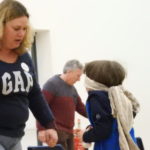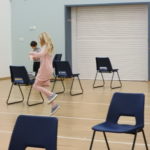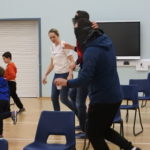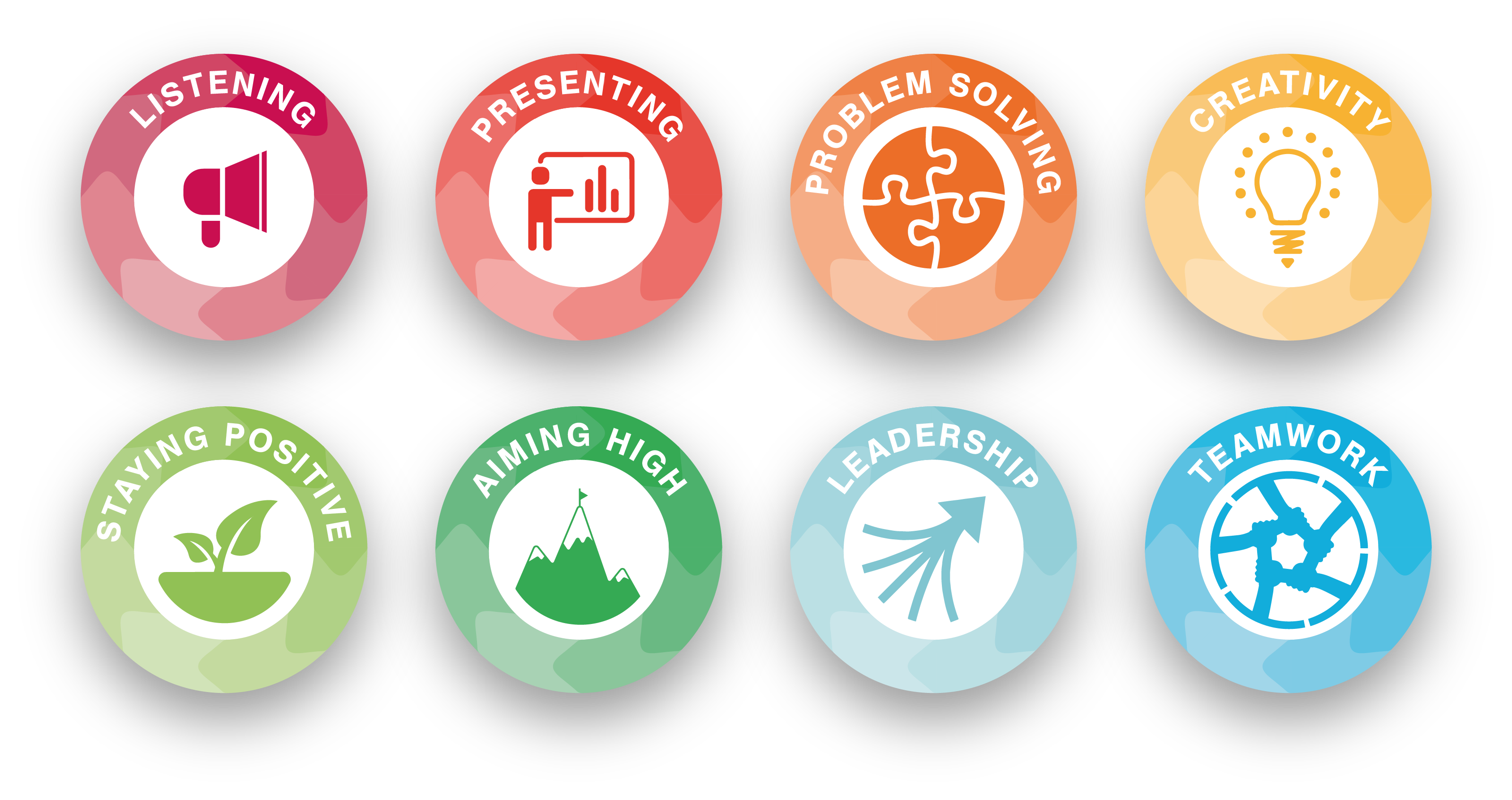Does your child’s school Skills Build? In the current education system, many children are missing out on learning the essential “soft” skills of life – interpersonal, self-management, creative problem-solving and communication skills. The Skills Builder Partnership works with schools, using a step-by-step framework, to help children and young people develop their abilities in eight key areas:
Listening, Presenting, Problem Solving, Creativity, Staying Positive, Aiming High, Leadership and Teamwork
The eight skills are broken down into simple, bite-sized pieces that are easily evaluated, and children from age three upwards begin to develop these lifelong abilities. The skill areas are tracked separately in steps, through self-checking and by a teacher who monitors a child’s strengths and weaknesses. In Step 0 for teamwork, for example, a child may be happy to take turns with other children, in Step 7 they recognise the value of their peers ideas and are willing to compromise to create a joint decision. By the time they get to Step 15, the last step, they are able to manage team dynamics and evaluate team performance to make improvements. Children and young adults are encouraged to integrate these skills into everyday life outside of the classroom, and real-life problems and challenges are included as part of their lessons.
Although originally aimed at schools, Potential Plus UK is undertaking a pilot with the Skills Builder Partnership to find out whether the framework could be used at home by parents, who would evaluate the skills instead of teachers. While skills building activities are being integrated into Potential Plus UK’s events, and some articles in Focus on Potential will be flagged up with Skills Builder symbols, the key to using Skills Builder is for the child to self-evaluate, moving up a level once they can apply it comfortably, and for an adult to work with them guiding and monitoring. Activity leaders at Potential Plus UK don’t work enough with the children to help evaluate their individual levels, so this is where parents come in.
We are looking for a small Focus Group of families to pilot the Skills Builder Framework between June 2018 and the Big Family Weekend in October. The pilot will include a monthly online discussion and online feedback.
Perhaps you have a child who works brilliantly on their own, but school has mentioned they are struggling with teamwork. Or they have brilliantly creative ideas but are unable to articulate them. They visualise end goals but can’t organise themselves to reach them, or the frustration of trying to solve the world’s problems without the right creative tools just ends up in meltdowns. If you would like to help your children develop their ‘soft’ skills and are interested in helping us with this pilot, please email holly.smith@potentialplusuk.org confirming the best email address to use to contact you on.
At the Family Learning Day in March we tried out two contrasting Skill Builder Teamwork activities.
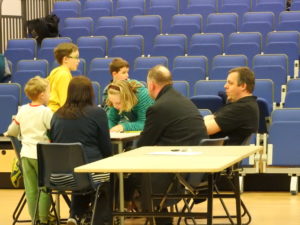 The Camping Trip saw teams of at least 2 families working together. They had to discover 20 pictures of items scattered around the main hall and consider which 5 items would be taken on a camping trip. Only 2 people were allowed to be away from the team at any one time. Teams had decide which 2 people would be best sent out to explore, should they go together or separately or take it in turns? Then they had to justify which 5 items they would take and why. The emphasis was on agreement and reasoning in teamwork.
The Camping Trip saw teams of at least 2 families working together. They had to discover 20 pictures of items scattered around the main hall and consider which 5 items would be taken on a camping trip. Only 2 people were allowed to be away from the team at any one time. Teams had decide which 2 people would be best sent out to explore, should they go together or separately or take it in turns? Then they had to justify which 5 items they would take and why. The emphasis was on agreement and reasoning in teamwork.
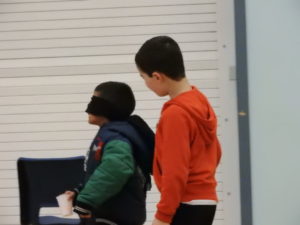 Ping Pong Venture on the other hand was a very physical challenge – once again working in teams of at least 2 families they had to transfer as many ping pong balls as possible to the other side of the hall using only a small cup and avoiding the obstacles. To add to the fun, each ‘run’ with the ping pong balls had to be undertaken differently, from walking, hopping on one leg, blindfolded with a helper who could talk to them but not touch them, to the lot: hopping and blindfolded! Teams had to discuss the relative strengths and weaknesses of their team and agree the order of who would do each ‘run’ and who would collect the stray ping pong balls. A great deal of fun for all!
Ping Pong Venture on the other hand was a very physical challenge – once again working in teams of at least 2 families they had to transfer as many ping pong balls as possible to the other side of the hall using only a small cup and avoiding the obstacles. To add to the fun, each ‘run’ with the ping pong balls had to be undertaken differently, from walking, hopping on one leg, blindfolded with a helper who could talk to them but not touch them, to the lot: hopping and blindfolded! Teams had to discuss the relative strengths and weaknesses of their team and agree the order of who would do each ‘run’ and who would collect the stray ping pong balls. A great deal of fun for all!
